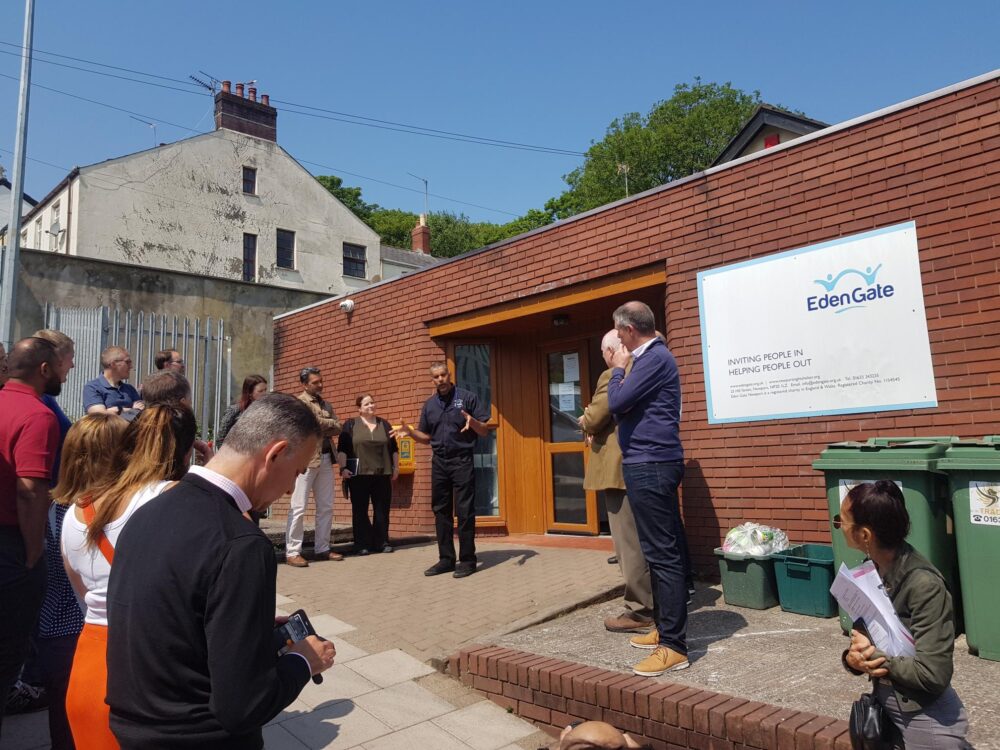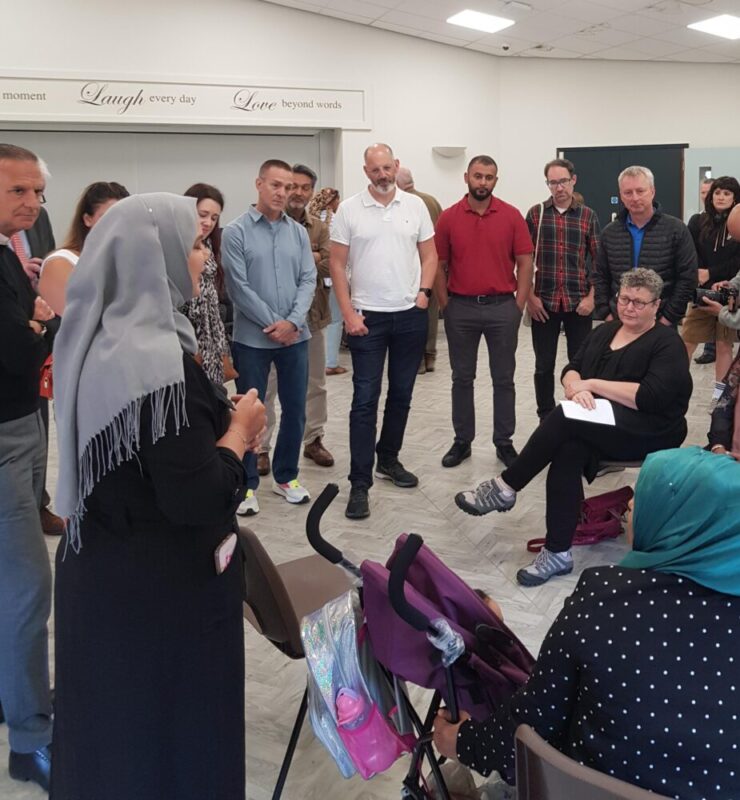Business leaders visit Newport as part of BITC’s Seeing is Believing programme

Business in the Community (BITC), The Prince’s Responsible Business Network, yesterday brought together senior business leaders from companies such as Mott MacDonald, Enterprise Holdings, Transport for Wales, TSB Bank, the Office for National Statistics, and PwC to understand the complexity and interconnectivity of issues that contribute to multiple deprivation, and explore some of the ways in which business can intervene and take action to mitigate the impact this has, in Newport and Pillgwenlly. The visit is part of BITC’s flagship initiative, The Prince’s Seeing is Believing programme.
The Seeing is Believing programme is one of the most prestigious immersive experiences available for C-suite leaders. The programme helps drive BITC’s Place programme by facilitating meaningful cross-sector collaboration between business leaders, communities, and local councils on new, innovative solutions that will deliver long-term, transformative change in places around the UK, including Newport.

The visit to Newport, which was led by Paul Lewis, Firmwide Managing Partner, Linklaters LLP, and Prof. Simon Gibson CBE, Chief Executive Officer, Wesley Clover Wales, comes as BITC’s research into the cost-of-living crisis found that six out of 10 people living in Wales said that their household’s current financial situation is negatively impacting their mental health, compared to five in 10 across the UK. The research also found that one in 10 people in Wales said they would need to rely on community support, such as foodbanks or warm banks, to get them through the cost-of-living crisis. To demonstrate its long-term commitment to Newport, and its national commitment to supporting communities around the UK, Linklaters LLP is joining BITC’s Newport Place programme to work with residents, stakeholders, and other businesses in addressing inequalities in Newport.
As part of the visit, leaders visited community organisations including Kidcare4u, an organisation that supports families, predominantly from ethnic minority communities across Newport and Pillgwenlly, to acquire the skills and confidence they need to turn their potential into success at school, the workplace, and beyond. Business leaders will also visit Pill Mill Community Centre, Eden Gate Newport, and Operasonic.

Paul Lewis, Firmwide Managing Partner, Linklaters LLP, and leader of BITC’s Newport Seeing is Believing visit, said:
“Business leadership is not just about focusing on your own business and its success alone, but also on the social impact your business can have. Through BITC’s Seeing is Believing programme, I have been able to get a first-hand view of some of the social challenges we face in this country. The programme is very valuable in bringing together business leaders and galvanising them to address the inequalities which we’ve seen. Working with BITC on the visit to Newport has been a privilege, and I’m looking forward to working with the other business leaders to address these critical issues head-on.”
Lord Bassam of Brighton, Co-Director of Place at Business in the Community, said:
“Business leaders understand that they have a responsibility to work together to create a fairer and greener world. By attending a Seeing is Believing visit, leaders have the opportunity to gain a first-hand understanding of the impact of business decisions on communities. The visit to Newport highlighted that there is a real interconnectedness that contributes to the deprivation of a place. BITC will now work closely with the business leaders who attended the visit to address the issues we have seen, and build long-term, sustainable change for the people, businesses, and communities of Newport and Pillgwenlly.”
The Seeing is Believing programme was established by the then Prince of Wales in 1990. The programme was born from a simple but powerful belief that the best way to close the gap between the boardroom and the community was to take business leaders out to the communities and, through the power of experiential learning, to inspire and challenge participants. The visits are designed to encourage business leaders to think strategically about the implications for their own businesses and the practical actions that can be taken in response, leading to meaningful and sustained impact for both businesses and communities. To date, over 25,000 business leaders have taken part in the Seeing is Believing programme.